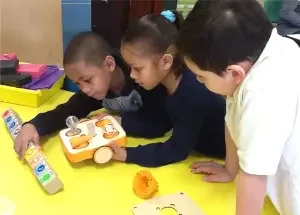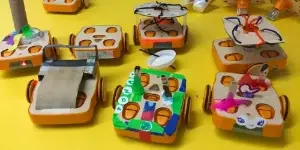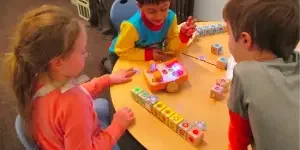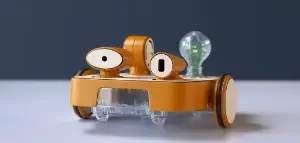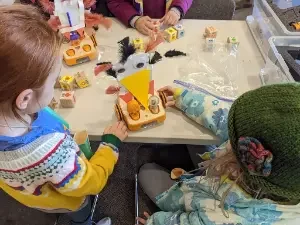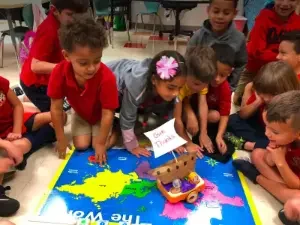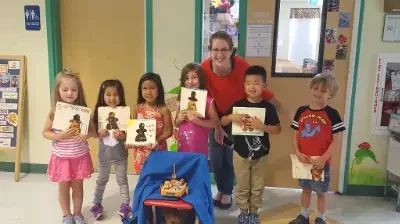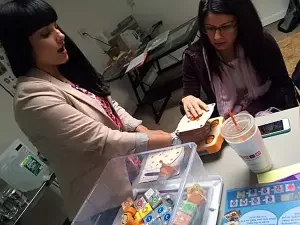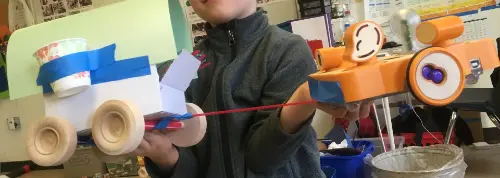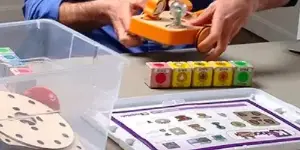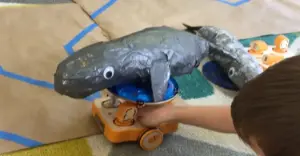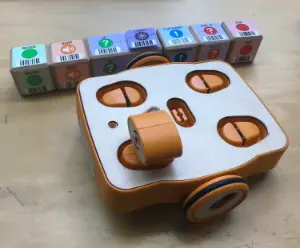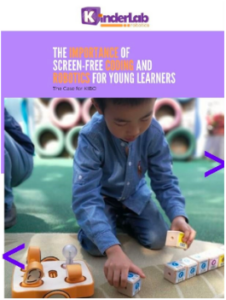Edutopia: Marina Umaschi Bers on Coding as an Essential Form of Literacy
Dr. Marina Bers, KinderLab Robotics’ co-founder and chief scientist, provides this excerpt from her new book, Beyond Coding: How Children Learn Human Values Through Programming, for Edutopia. Marina describes an example of an educator using the KIBO robot with her students, providing not only coding and robotics instruction, but a lesson on resilience and collaboration.
The excerpt reads in part:
“Ms. Lorna’s classroom was following the CAL KIBO curriculum developed by my DevTech Research Group at Tufts University. This curriculum introduces powerful ideas of computer science, such as repeat loops, in direct conversation with powerful ideas from literacy, such as repetition. However, before getting to this, it focuses on the concept of sequencing. Sequences can be found in natural languages through words and stories and also in artificial languages; algorithms are sequences of instructions for a robot or program to follow.
At its simplest level, computer programming is the activity of putting together a sequence of instructions. In the process of making this sequence, the programmer engages in abstract, logical thinking. Although most of us can identify the act of thinking and recognize its value, there is no scholarly consensus on its definition. Thinking is the ability to represent, model, make sense, interpret, predict, and invent our experiences in the world. Thinking is facilitated by language. As Soviet psychologist Lev Vygotsky wrote, “Thought development is determined by language, i.e., by the linguistic tools of thought.” Thus, as educators, we strive to help children develop one of the most powerful tools for thinking: natural written languages. In the coding playground, we give them another tool: artificial programming languages.
Early childhood education has many strategies for building language skills and supporting the transition from oral to written language. The teaching of literacy has occupied the early grades for a long time. Today, we have a new opportunity: teaching children how to think by using both natural and artificial languages. While humans understand written alphabets, smart objects only understand programming languages.
Here, I am sharing a pedagogical approach to make coding a literacy of the twenty-first century. The goal of literacy is to master the syntax and grammar but also the meanings and uses of the systems of representation. A literate person knows that reading and writing are tools for interpretation and, in time, tools of power. They support new ways of thinking. Echoing Brazilian educator Paulo Freire, literacy is a tool for critical comprehension, for understanding the world, and for actively changing it. He wrote in the early ’70s and ’80s that the written word is a tool for personal transformation and social change. His work inspired mass literacy campaigns as a way to liberate the oppressed. I believe this could be the same with coding. Furthermore, thinking of coding as a literacy give us access to new ways to teach both programming and reading and writing both literacies of the twenty-first century.”
Read the full excerpt.

